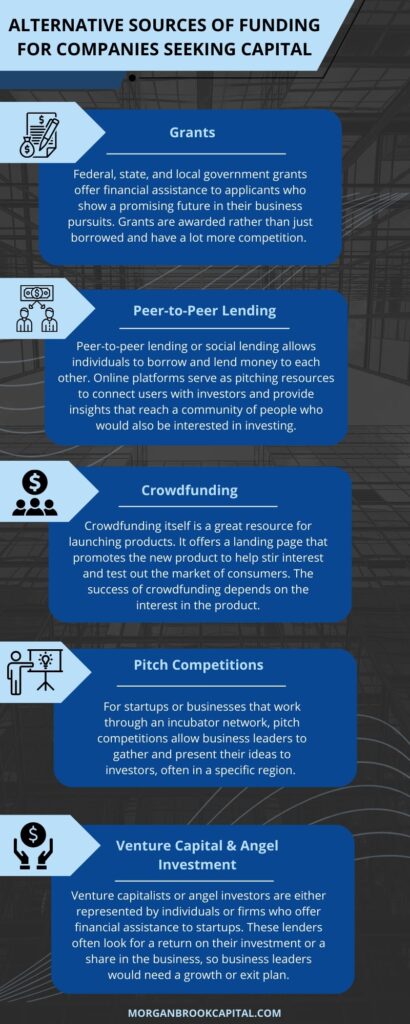Traditional bank loans have assisted many business leaders as they aim to raise enough capital for their startups. However, many emerging leaders don’t have the resources to pay for their company’s funds out of their own pockets, especially in the fluctuating state of the economy. It can make finding and obtaining loans a hardship. Thankfully, new funding alternatives to traditional loans for businesses are changing the way founders pursue the financial support they need.
Many sources of alternative funding can be found online and business leaders may consider finding a funding route that can help if they have bad credit, have been turned down for bank loans, or are unsure of how much funding they need for their business. For newcomers to business financing, the alternative sourcing guide below can help leaders find the best options for gaining capital.
Grants
Federal, state, and local government grants offer financial assistance to applicants who show a promising future in their business pursuits. Grants are awarded rather than just borrowed and have a lot more competition. Although they may be more difficult to acquire, grants can be an incredibly helpful resource to pursue one’s business goals. Government and SBA grants are some of the most common grants to be pursued. NAV and the National Association for the Self-Employed also help startup founders learn about other resources to make grants easier to obtain.
Peer-to-Peer Lending
Peer-to-peer lending or social lending allows individuals to borrow and lend money to each other. Online platforms serve as pitching resources to connect users with investors and provide insights that reach a community of people who would also be interested in investing. This funding style is more useful for businesses that are more well-established and looking to expand. It also requires a very detailed pitch deck. Many think of this as a mix between angel investing, crowdfunding and loans.
Crowdfunding
Crowdfunding itself is a great resource for launching products. It offers a landing page that promotes the new product to help stir interest and test out the market of consumers. The success of crowdfunding depends on the interest in the product. Each crowdfunding site will differ from the next. It’s also worthwhile to note that some crowdfunding sites allow funding gifts for a limited time. Others require you to meet a goal so that all the funds can be received. Each site offers terms and conditions, so it’s important to understand that leaders may receive all or nothing with this financing option.
Pitch Competitions
For startups or businesses that work through an incubator network, pitch competitions allow business leaders to gather and present their ideas to investors, often in a specific region. It sometimes demands that presenters are part of a group of entrepreneurs or present at a specific presentation stage. This type of funding is often beneficial for leaders who seek to start and grow their businesses and gain more exposure for their companies. Often, regional or community-based pitch contests are available.
Venture Capital & Angel Investment
Venture capitalists or angel investors are either represented by individuals or firms who offer financial assistance to startups. These lenders often look for a return on their investment or a share in the business, so business leaders would need a growth or exit plan. Many industries like the digital, tech and medical fields typically demand companies to be disruptive and offer growth, so this route may be a good option. Always remember to have a foolproof business plan and pitch deck available.
Finding the right funding for your business can be challenging. However, these alternative funding options offer a diverse range of options to gain assets to help grow your burgeoning business. They can even help you save time. Remember, that the more due diligence you conduct ahead of time, the easier the process will be and the more safeguarded your business plans can become.


